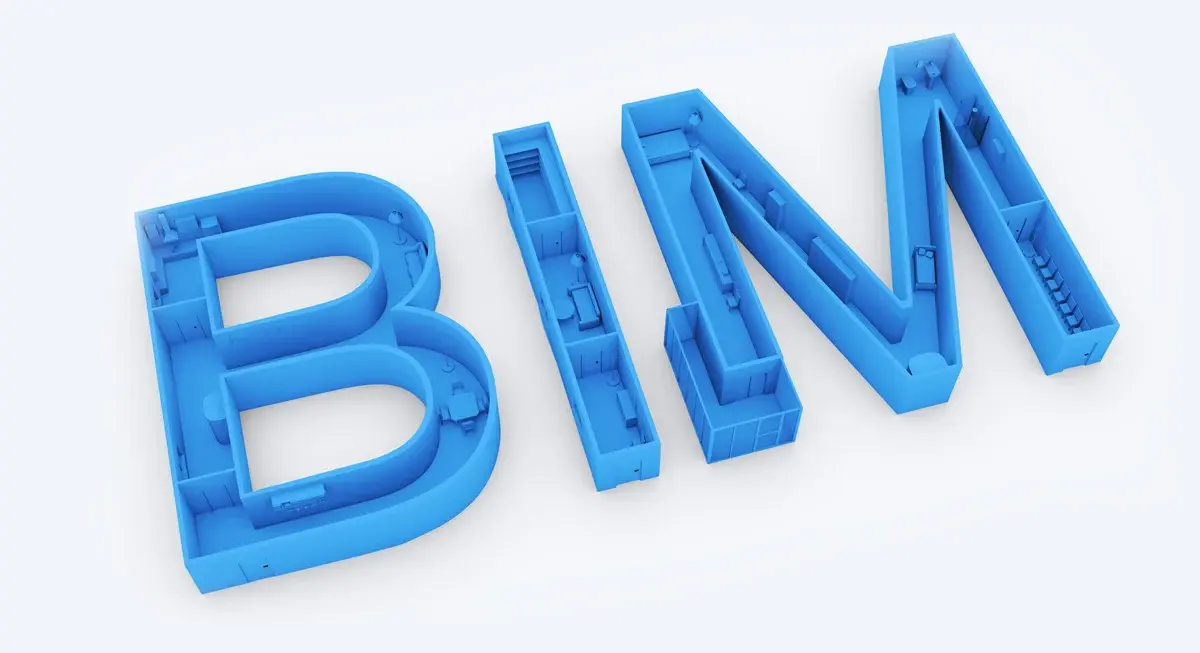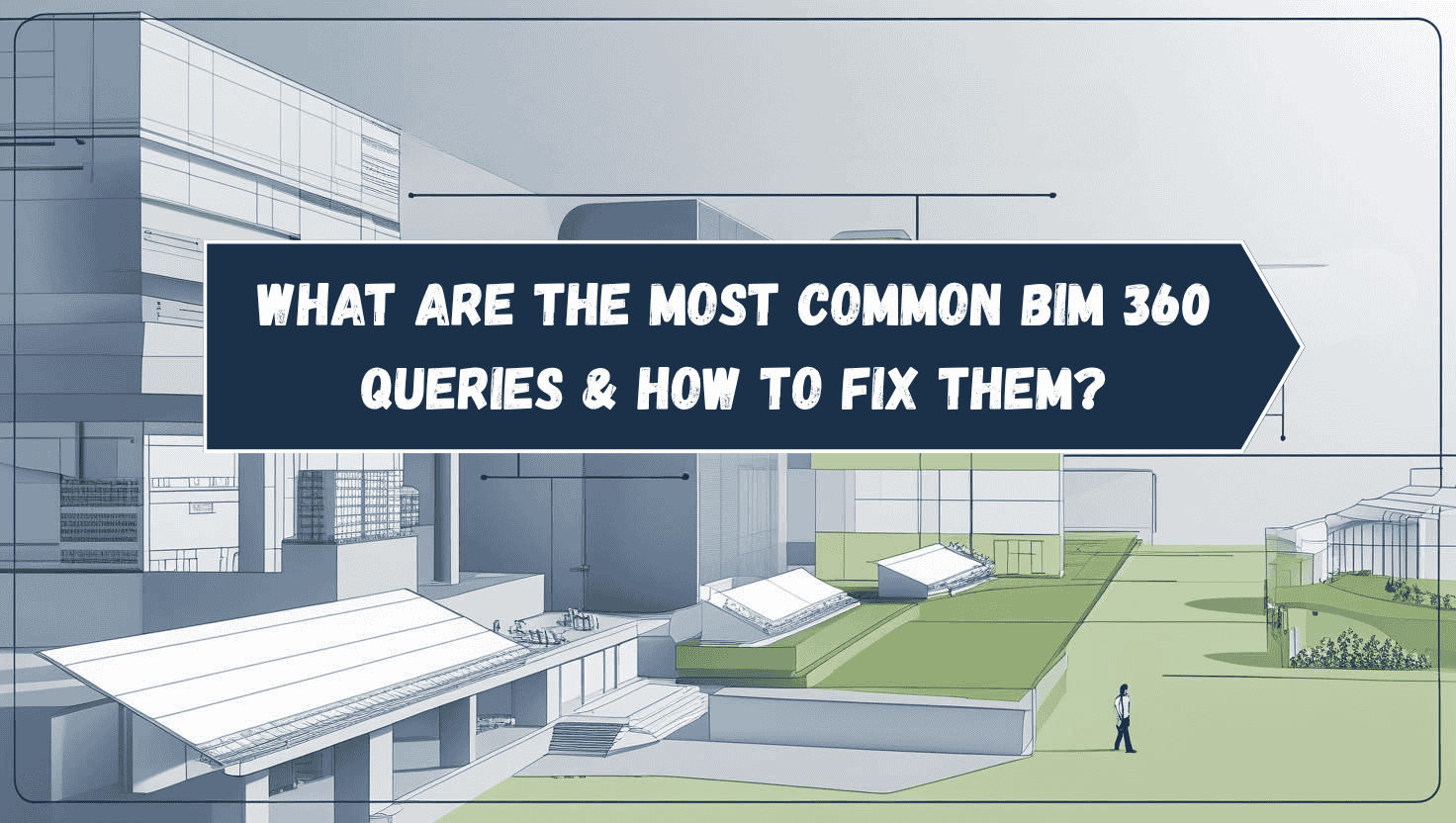
In the age-old debate of online vs. offline learning, Building Information Modelling certification programs stand on an obvious side: online learning. Due to BIM's (Building Information Modelling) significance in the AEC industry, it has become an invaluable tool for professionals.
How? Picture this: using BIM is like having an entire team sitting in a room, coordinating the project seamlessly. It covers everything from making informed decisions to developing and planning the design. BIM is a forward-thinking approach that helps detect conflicts very early on in the process.
But the benefits don’t end there. It also provides a sustainability analysis and long-term maintenance throughout the project’s lifecycle.
So, coming back to where we started: Which BIM course to pick? When you’re picking a BIM course, you should keep factors like work objectives and personal improvement that fit into your schedule. Let’s dive deeper into the pros and cons of BIM online courses.
Pros & Cons of Online BIM Courses

While online and offline BIM courses have advantages and disadvantages, online BIM courses weigh heavier on the pros.
1. Flexibility:
Online BIM courses provide you with the comfort and convenience of learning at your own speed. Furthermore, you can choose to pick and continue where you left the last module off on the basis of your schedule. This makes it the perfect fit for working professionals.
2. Cost-Effective:
Circling back to convenience, online BIM courses, more often than not, offer flexible EMI options. In fact, it reduces redundant costs such as living or transportation expenditures.
3. Networking:
Online BIM courses offer excellent networking opportunities by giving you access to webinars, virtual forums, and collaborative projects. These are led by industry professionals, providing you with insider industry knowledge.
4. Accessibility:
Online platforms like Novatr make BIM online certification courses accessible to everyone keen to learn, irrespective of their location.
Although, at the end of the day, what works best for you varies based on your preferred learning style, professional goals, and financial situation.
Pros & Cons of Offline BIM Courses
Now that we’ve covered the pros of online BIM courses, let’s take a look at what offline courses have to offer.
1. Hands-on Experience:
When it comes to practicality, offline BIM courses have the upper hand. You get the opportunity to work on real-life projects in person.
2. Networking:
When you’re working on the field with your peers, surrounded by the action, it fosters a networking environment.
3. Structured Learning:
This can be considered a con as well. Offline BIM courses have a structure and a rigid timeline. For people who work better under set timelines and guidelines, this can be the ideal way to go.
Online BIM Courses vs Offline Programs
|
Aspect |
Offline Learning |
Online Learning |
|
Who You Learn From |
Mostly academic teachers follow fixed curricula, with limited exposure to current industry workflows. |
Classes led by active industry professionals who bring real-world case studies and project insights. (For instance, some platforms connect learners with mentors working across global AEC firms.) |
|
Exposure and Networking |
Limited to local peers and faculty; restricted by geography and institutional reach. |
Broader exposure through diverse cohorts and international mentors, creating a network that mirrors global work environments. |
|
Curriculum Relevance |
Typically aligned with university boards and slow to adapt to new technologies or industry demands. |
Regularly updated to reflect emerging tools and practices, ensuring you learn what’s relevant today, not what was relevant five years ago. |
|
Project-Based Learning |
Often theory-heavy with occasional studio work; access to tools may depend on institutional infrastructure. |
Hands-on, tool-oriented learning where assignments simulate real-world workflows using industry software and global standards. |
|
Placement & Career Support |
Limited or dependent on college reputation and local connections. Rarely supported after graduation. |
Structured placement assistance, portfolio reviews, and interview preparation. |
|
Global Workflow Understanding |
Focused on local codes and practices; minimal exposure to international standards. |
Introduces global frameworks (like ISO 19650) and collaborative workflows that are useful for professionals aiming to work abroad. |
|
Flexibility & Accessibility |
Fixed schedules and location-based learning; travel and time constraints. |
Learn from anywhere with flexible timings, especially valuable for working professionals or those balancing multiple commitments. |
|
Cost vs Value |
Lower upfront fees but added costs for travel, accommodation, and materials. |
Slightly higher tuition but stronger ROI through skill relevance, placement support, and access to cutting-edge tools. |
Top Online BIM Courses
Choosing between an online BIM program and a traditional offline course can be a major decision—especially for working professionals and fresh graduates looking to upskill efficiently. While traditional institutes have been around for decades, their offline models can often be rigid, time-intensive, and less adaptable to evolving industry demands.
In contrast, Novatr’s online BIM Professional Courses are designed to deliver flexibility, cutting-edge skill-building, and global exposure—all from the comfort of your home. Here’s how each of our specialised programs stands out:
1. Novatr’s BIM Professional Course for Architects
This 7-month online course equips architects with the most in-demand BIM skills across the industry. What sets it apart:
- Mentorship from AEC Experts: Learn directly from global professionals at firms like Cooper Carry, Arup, Benoy, Schmidt Hammer Lassen, and RSP Singapore.
- Real-World Application: Work on a live RIBA-approved project as your capstone.
- Career-Focused Curriculum: Understand not just the "how" but the "why" behind each workflow.
Key Highlights:
- Learn 12+ BIM software and workflows
- Build a portfolio with a real BIM project
- Access placement support with leading global firms
2. Novatr’s BIM Professional Course for Civil Engineers
Designed for both Civil and Structural Engineers, this 7-month course ensures you’re job-ready for modern BIM-led roles in infrastructure and construction.
- Global Mentorship: Get trained by professionals from top AEC firms including Arup, Cooper Carry, and more.
- Project-Based Learning: Complete 3 live ISO-standard projects across the course.
- Industry Alignment: Focused on workflows and tools that firms are hiring for right now.
Key Highlights:
- Master 12+ BIM software and plugins
- Work on live industry-standard projects
- Get placed at top global BIM firms
3. Novatr’s BIM Professional Course for MEP Engineers
Long story short, BIM opens doors to a better experience while executing MEP systems in any AEC project. This course cuts through the clutter to deliver exactly what employers need—no fluff, just practical, job-ready skills.
- Career Outcomes: 1000+ alumni have experienced significant career growth; the top 20% secured roles in Tier A companies.
- Software & Workflows: Dive deep into tools that matter for MEP workflows.
- Project-Based Learning: Get hands-on with 3+ ISO-certified projects to showcase your skills.
Key Highlights:
- Learn 12+ essential BIM software and plugins
- Gain real-world experience with ISO-certified projects
- Join a strong alumni network with proven placement outcomes
What About Offline Programs?
Traditional offline courses—like those offered by long-standing institutions such as CADD Centre—can provide in-person instruction and familiarity. However, they often lack the flexibility and global relevance that today’s professionals seek.
Conclusion
Both online and offline BIM courses offer exceptional opportunities to further hone expertise and progress professionally. Your decision should be based on your career objectives, time constraints, and adaptability needs.
It's all about embracing the change and using it to make ourselves more valuable, not fighting against the inevitable. Novatr is leading this change.
Take the next step in your career today! Go through Novatr’s Resource Page for the latest industry insights and updates.
Was this content helpful to you

TABLE OF CONTENTS






.png)


.png)